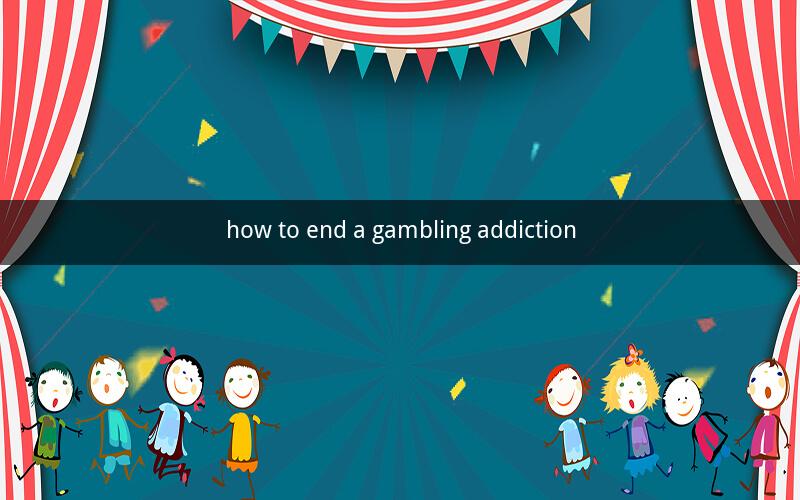
Contents
1. Understanding the Problem
2. Recognizing the Signs
3. Seeking Professional Help
4. Building a Support System
5. Financial Management
6. Behavioral Therapies
7. Self-Reflection and Self-Regulation
8. Alternative Activities
9. Legal Consequences
10. Maintaining Sobriety
1. Understanding the Problem
Gambling addiction, often referred to as problem gambling, is a serious condition that affects millions of people worldwide. It involves the inability to control the urge to gamble, leading to significant negative consequences in various aspects of life, including financial, emotional, and social well-being.
2. Recognizing the Signs
Identifying the signs of a gambling addiction is crucial for early intervention. These signs may include:
- Preoccupation with gambling thoughts.
- Needing to bet more money to achieve the same thrill.
- Feeling restless or irritable when unable to gamble.
- Chasing losses in an attempt to recoup money.
- Lying to family and friends about gambling activities.
- Using gambling as a way to escape problems or negative emotions.
3. Seeking Professional Help
Professional help is essential for overcoming a gambling addiction. Therapists, counselors, and addiction specialists can provide tailored treatment plans that may include:
- Cognitive-behavioral therapy (CBT) to identify and change gambling-related thoughts and behaviors.
- Contingency management, which uses rewards to encourage positive behavior and reduce gambling.
- Family therapy to address the impact of gambling on loved ones.
4. Building a Support System
A strong support system can significantly aid in recovery. This may include:
- Joining a support group, such as Gamblers Anonymous.
- Reaching out to friends and family for emotional support.
- Engaging in community activities that promote healthy lifestyles.
5. Financial Management
Addressing the financial consequences of gambling addiction is vital. This may involve:
- Creating a budget to manage finances and set aside funds for necessities.
- Seeking financial counseling to develop strategies for managing debt.
- Selling or refinancing assets to regain financial stability.
6. Behavioral Therapies
Behavioral therapies are effective in treating gambling addiction. These may include:
- Problem-solving therapy to develop strategies for overcoming challenges.
- Relapse prevention planning to anticipate and address potential triggers.
- Mindfulness training to improve self-awareness and reduce stress.
7. Self-Reflection and Self-Regulation
Self-reflection and self-regulation are key components of recovery. This involves:
- Keeping a journal to track thoughts, feelings, and gambling activities.
- Practicing self-discipline by setting limits on gambling time and money spent.
- Developing healthy coping mechanisms for managing stress and negative emotions.
8. Alternative Activities
Engaging in alternative activities can help reduce the urge to gamble. These may include:
- Participating in sports or other physical activities.
- Taking up a new hobby, such as painting, writing, or gardening.
- Volunteering or joining a community group.
9. Legal Consequences
Gambling addiction can lead to legal consequences, such as:
- Criminal charges for theft, fraud, or embezzlement.
- Financial penalties for unpaid debts.
- Loss of employment or professional licenses.
10. Maintaining Sobriety
Maintaining sobriety from gambling addiction is a lifelong process. This involves:
- Regularly attending support group meetings.
- Continuing therapy and other forms of treatment.
- Being vigilant about potential triggers and taking proactive steps to avoid them.
Questions and Answers
1. What are the long-term effects of untreated gambling addiction?
- Untreated gambling addiction can lead to severe financial problems, relationship breakdowns, mental health issues, and even suicide.
2. Can someone recover from a gambling addiction without professional help?
- While some individuals may recover on their own, professional help can significantly improve the chances of successful recovery.
3. How can I tell if I have a gambling addiction?
- If you find yourself preoccupied with gambling, lying about it, and experiencing negative consequences due to your gambling, you may have a gambling addiction.
4. What are the most effective treatments for gambling addiction?
- Cognitive-behavioral therapy, contingency management, and support groups are among the most effective treatments for gambling addiction.
5. How can I get my loved one to seek help for their gambling addiction?
- Encourage your loved one to seek help by expressing your concerns, offering support, and suggesting professional help.
6. Can a gambling addiction be cured?
- While there is no cure for gambling addiction, it can be effectively managed through treatment and support.
7. How can I cope with the financial consequences of a gambling addiction?
- Seek financial counseling, create a budget, and explore options for debt management or consolidation.
8. Are there any medications that can help treat a gambling addiction?
- Currently, there are no medications specifically approved for treating gambling addiction, but some medications may be used to manage co-occurring conditions.
9. How can I prevent a gambling addiction from returning?
- Maintain a strong support system, continue therapy, and be vigilant about potential triggers.
10. What should I do if I think I might have a gambling addiction?
- Seek professional help, join a support group, and take steps to address the negative consequences of your gambling behavior.